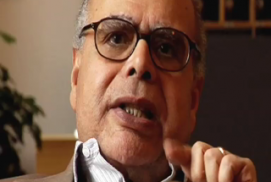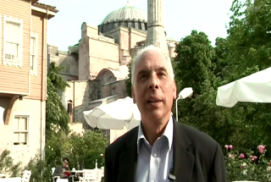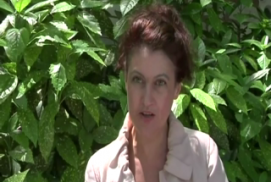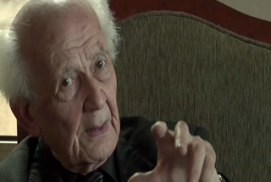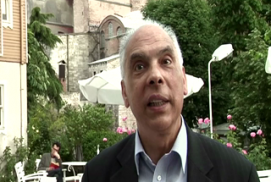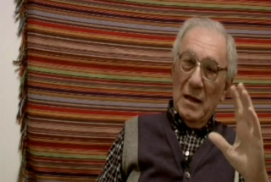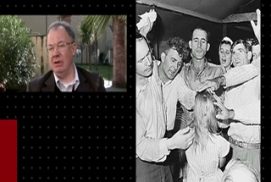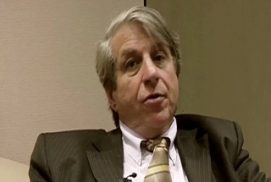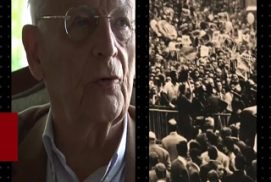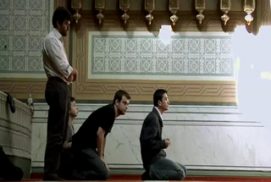
Videos

- Nasr Hamid Abu-Zayd 18 July 2011According to the Qur’an God created human beings in nations, tribes, with different colors and different languages in order to know each other – human beings know themselves by communicating and understanding the Other. Historically Islam is the spiritual and ethical call for social justice. The Qur’an is about the poor and the needy. And it is about the Other. On the anniversary of his death, ResetDoc remembers the great Egyptian philosopher Nasr Hamid Abu Zayd with this interview.
- 13 June 2011A process of secularization is taking place in the Muslim world. People hope for human rights, political and economic participation, and social fairness. At the same time, many of these same people refuse to become, or to define themselves as, secular. The reasons for this refusal are numerous: misunderstanding, mistranslations into atheistic terms, fear of loss of religion and identity, but also the cruel memory of tyrannical secular governments and elites taking advantage of the benefits of economic modernization for themselves.Moroccan philosopher and former director of Aga Khan University, Abdou Filali-Ansary, talks to ResetDoC at the Istanbul Seminars.
- 18 May 2011To be competitive in a globalized world, countries have started to deregulate and liberalize their economies, states have given up their responsibilities for economic policies, and individual citizens have become entirely responsible for their survival. To what extent is today’s growing xenophobia, nourished by widespread politics of fear, linked to this age of economic uncertainty? On the occasion of the Istanbul Seminars, ResetDoc has interviewed Albena Azmanova on these issues.
- 18 May 2011Modernity has two powerful characteristics that constantly produce redundant people, who can’t be accommodated—the people that don’t fit. The first is the order-building characteristic: modernity is obsessively ordering a chaotic reality. Inevitably this produces conflicting loyalties, diasporas and migration, since there are redundant people, who don’t fit the image of order prescribed by modernity. The second characteristic is economic progress, which makes human labor less and less valuable, so that people lose their skills and personal capital and need to move elsewhere. The great sociologist Zygmunt Bauman talks to ResetDoc about Europe, migrations and modernity.
- 18 May 2011This enlightened Muslim philosopher explains why the call for the implementation of Shari’a has become stronger and more widespread. At the same time changes and a liberal intellectual revolution have been going on within the Muslim world: involving not a movement but individuals rethinking a new Muslim consciousness. The Moroccan philosopher and former director of the Aga Khan University, Abdou Filali-Ansary talks to ResetDoC at Istanbul Seminars.
- Sadik Al-Azm 11 May 2011Islamists want to regain control of all of the issues in everyday life, says Syrian philosopher Sadik Al-Azm. There might not be an end to violence not that a reactionary movement exists. This movement wants to retrieve what has been lost, instead of pursue progressive and new ways to live Islam today.
- 8 March 2011«We have now a global religious market. People convert to any kind of religion, whatever their own cultural background – says Olivier Roy, French scholar of Islam, in this Resetdoc interview – It works, because these religions are now deculturalized religions, they have explicitily have cut the links with specific cultures. We can speak of McDonald’s religions: they sell the same product anywhere in the world, they don’t care to adapt to local cultures.»
- 7 December 2010«We need to examine what we mean by religion and by democracy, and which kind of religion is compatible with which democracy. We should not talk about Islam but Islams, not Christianity but Christianities, not liberal democracy but liberal democracies – says in this Resetdoc videointerview Benjamin Barber, president and director of the international NGO CivWorld at Demos and author of Jihad vs. McWorld and Consumed – There is a natural and healthy tension between religion and the state, but at the same time there is a complementarity between them. Despotism doesn’t need religion, liberty does.»
- Alain Touraine 16 November 2010«The category of immigrant is invented by and for the lowest part of the society, and immigrants are “invented” as scapegoats for issues they are not responsible for,» French sociologist Alain Touraine says in this Resetdoc video-interview. «Today in Europe the main preoccupation is not people coming from Arab countries—he adds—but from Eastern Europe.» (If you can’t watch our video, please go to our Youtube page)
- 1 November 2010«At the social and political level, religion can be a source of either integration or division, depending on how one defines the religious values – says in a Resetdoc video-interview Ibrahim Kalin, foreign policy adviser to Prime Minister Recep Tayyip Erdogan – The experience of democratization in Turkey is also that of a democratization of the religious discourse, and I see a great movement among the more conservative and tradional religious communities in Turkey: they are embracing the values of democracy, civil liberties and human rights.»


